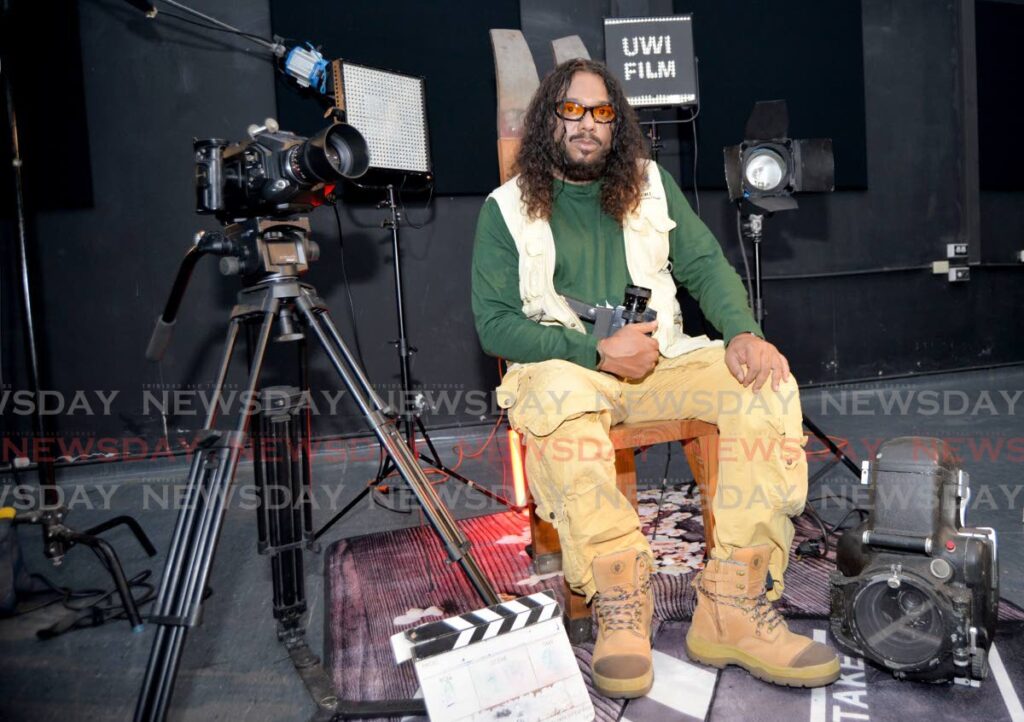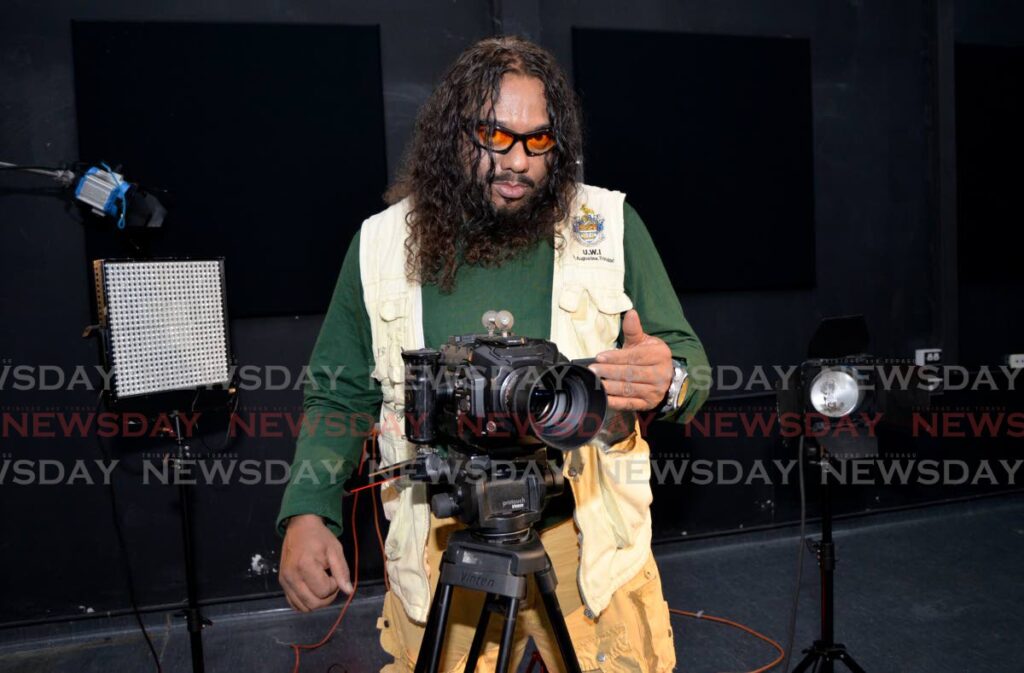Yao Ramesar's Fortune For All reflects life for a Caribbean family

For filmmaker Yao Ramesar, his latest fiction feature film, Fortune For All is a reflection on life, love, and loss in a contemporary middle class Caribbean family.
It tells the story of the Fortune siblings whose eldest brother died suddenly. The three surviving siblings, a novelist, an attorney, and a politician, retreat to the family’s seaside estate for a period of isolation and bereavement.
“It’s a celebration of life and living. Sometimes just surviving is a triumph. Family and community are important as life is not a singular journey. It’s about losing, loving, regaining something, and finding out insights about what it means to exist. It’s about the celebration of life in those who survive and how they decide to negotiate with what is left of their time on earth.”
Ramesar said the idea for the film came to him in 2017 when, amid several projects, he returned to Trinidad to attend a funeral. He listened to the eulogy, which was given by an elder sibling, and he crossed the street and started to write the story on a napkin.
He said writers, including himself, like to place intimate family drama against the background of a war or some other cataclysmic event.
“I thought of some variant on that, where there would be some virus sweeping the Caribbean and the brother's cause of death would have been from a virus that had yet to be recognised.
“Coincidentally, in March 2020 a real virus which became a pandemic, actually stopped production. It was like life imitating art.”
He said while the virus is the background of the film, it is not a main component. It is instead hinted at with mentions of isolation and the deaths of the second eldest surviving brother’s fiance, their father, father’s mistress and brother around the same time.
He told Sunday Newsday he wanted to do a character-driven film because film makers sometimes narrow Caribbean people down for convenience. But he believes it limits who the people are and what they could become.
“I find that generally the films that we make tend to be very performative and we have to have a lot of action in different ways. But we’ve reached a point of stereotypical stuff and caricature. I always want to draw characters with very rich lives who fulfil and think and dream and have a little more depth.
“Yes we have gangsters and ganja and beaches and happy-go-lucky vibes, but that is not the only realm we exist in. This particular film is showing the multi-dimensional Caribbean.”
He said TT, both islands, has a compelling and very complex society that can not really be simplified. He said it might be simplified for mass markets and ease-of-use but more needs to be done to represent its society in its fullness.

“We are not here as toys or simply for easy-to-consume entertainment.”
He said the cast, crew and the opera singer who performs the soundtrack are all Caribbean people and most are established in their fields.
For example, Nickolai Salcedo plays the lead in Hero which airs on BBC2, on June 21. Michael Cherrie, who played the lead in the British Channel 4 television film The Final Passage in 1996, stars alongside academy award winner Regina King in Chisholm (2023).
He described Samara Lallo as one of the best actresses in TT and Kyle Hernandez as a very charismatic up-and coming actor. The only person in the film who has never acted before is Tobagonian Rebecca Nedd who plays the siblings’ mother.
“It is typical to have that salt-of-the-earth mother who may not have had a formal education but who sends their children to make sure they go to the best schools and become professionals. In her I really wanted to give recognition to that figure who comes from humble stock and who gives their children everything they can.”
The international release of Fortune For All will take place at Ischia Global Film Festival, Italy on July 9-13 and in Giza, Cairo, Egypt at the Great Pyramid and Sphinx for the Cacique Film awards on July 14. It will also be screened at several other film festivals around the globe, including North America, Europe, India and the Caribbean, later in the year.
Born in Ghana, West Africa of an Afro-Jamaican mother and Indo-Trinidadian father, Ramesar is head of the UWI Film degree programme. He was also head of the TT Film Company and director of Creative TT.
He has lived in TT since 1970 except for eight years studying film at Howard University in DC, US. In 2006, he completed his doctorate degree at UWI St Augustine which he described as the pinnacle of his academic life because it was “bestowed by his people.”
Next year will be his 40th anniversary of making films, which amount to about 120 documentaries, short and feature films.
He said people constantly talk about building a film industry in TT but he believes it already has one through the simple act of making films.
“We have to define ourselves. We can’t do it relative to Hollywood, Bollywood or Nollywood. We already have an industry. We are not becoming all the time, in a perpetual state of infancy or incubation. That’s a trap.
“The thing is we must tell our own stories but what stories might those be? Because you can’t just crave a presence and bemoan the fact that you are absent from the big screen or small screen. You have to then question the quality of your presence. You could be present as a stereotype and therefore be counterproductive.”
He said it was necessary to explore prejudices and biases as a society instead of projecting them. So filmmakers need to be conscious of and reflect on what they create instead of “rushing in.”
He said in the early days of the local film industry, people did not take directing seriously, screen writing was underdeveloped, theatre actors were chosen for screen acting, and there was poor production value due to a lack of technology.
But he believed they have all improved and all the industry now needs is the cessation of writing stereotypes and projecting prejudices, unless it is the character’s personality.
“The benefit of being small is that, technically, we have a lot of manoeuvrability. And we can actually produce work at a similar quality (to more established industries) at a fraction of the cost.”
He said work is being done as proven by the many UWI students and alumni who have gone global and are competitively screening at the Berlin and at Cannes film festivals, in Nigeria, Mexico and other parts of the world over the years.
He said they are undergraduates operating at a master’s level.
Ramesar himself was never attracted to Hollywood and much preferred the film festival circuit. He said in the past he was asked to direct and write episodes of a major US TV series but he declined because he had a “day job” which he enjoys and he wants complete control over his projects.
However, he said he is becoming more flexible and open to new things so, without compromise to his work because of options offered by new media platforms, he may be “answering the call” of Hollywood in the future.
“I feel like owe it to the time and the civilisation and the Caribbean to be out there so that is something I will be working out over the next few years.”


Comments
"Yao Ramesar’s Fortune For All reflects life for a Caribbean family"